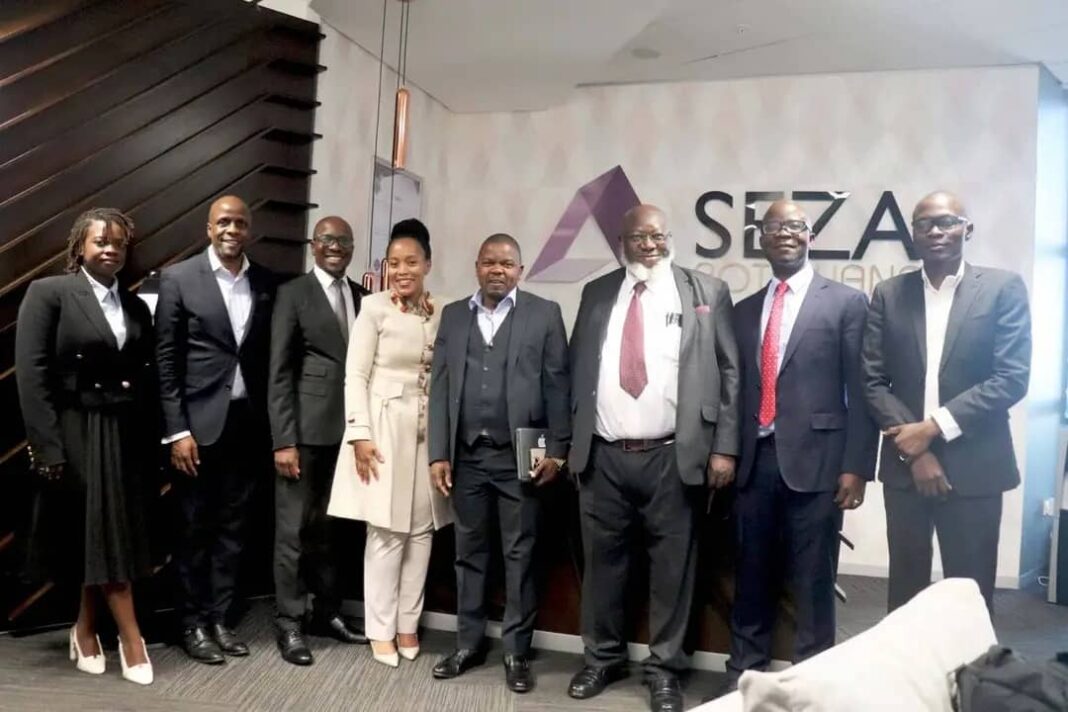A new era of tax and digital compliance is dawning in Botswana. The government recently published the Value Added Tax (Amendment) Bill, 2025, a landmark piece of legislation poised to fundamentally reshape the nation’s fiscal landscape.
This is not a simple tax tweak; it’s a foundational component of a cohesive, whole-of-government strategy to modernize the country’s economy for the digital age. By introducing provisions to tax remote services and mandating the use of electronic fiscal devices, the bill signals that Botswana is adopting a sophisticated, forward-looking regulatory model to govern commerce in the 21st century.
The Rationale for a Modernised Tax System
The primary driver behind this legislative shift is the need to adapt a decades-old tax framework, originally designed for tangible goods and physical services, to the realities of a global digital economy. The government recognises that digital transformation allows businesses to operate in foreign markets without a physical presence, creating a “tax nexus” challenge. By adopting a framework that taxes digital and remote services, Botswana aligns with global standards for e-commerce VAT collection, as endorsed by international bodies like the OECD. This proactive policy move enhances the nation’s credibility and regulatory maturity, signaling to the international business community that Botswana is a sophisticated and attractive destination for investment.
This bill is also part of a larger, integrated national digital transformation agenda. Published alongside the Digital Services Bill and the Cybersecurity Bill, this coordinated “whole-of-government” approach ensures a synergistic legislative effort. The VAT Bill’s mandate for electronic fiscal devices and digital invoicing is fundamentally dependent on the secure infrastructure and regulatory oversight proposed in the other two bills. The government isn’t just patching a revenue hole; it’s building a new, digitally-enabled framework for a modern economy.
Key Provisions Decoded
The new legislation introduces a series of complex but critical changes with direct implications for both local and international businesses.
A New Digital Tax Lexicon
The bill amends the Value Added Tax Act to introduce a new lexicon for the digital era. A key new definition is “remote services,” which covers services where there’s no necessary connection between the supplier’s physical location and the recipient’s. This includes digital content, online platforms, and professional services provided by non-resident attorneys and accountants. The bill also defines “electronic fiscal devices” and “fiscal receipts,” linking these terms to the upcoming mandatory e-invoicing system. For online platforms, the bill defines an “electronic marketplace,” setting the stage for a “deemed supplier” rule that will impact large online platforms.
Shifting the Burden: The Reverse-Charge Mechanism
A central tenet of the bill is the introduction of a “reverse charged supply” rule for imported services. This mechanism shifts the responsibility for VAT from the non-resident supplier to the local recipient, whether they are a registered person, a “large unregistered person,” or a government entity. This strategic move sidesteps jurisdictional challenges by placing the onus on the local entity to identify remote services and account for the VAT on their returns. While it simplifies compliance for foreign suppliers, it introduces a new administrative burden for local businesses, requiring significant changes to their accounting and procurement systems.
Establishing a Tax Nexus
The bill establishes sophisticated criteria to determine if a recipient of remote services is a resident of Botswana for VAT purposes. A person is considered a resident if at least two of the following factors are present: their billing address, the IP address of their device, bank account details, their mobile country code, or the location of their landline. This multi-factor approach creates a robust, evidence-based legal foundation for taxing services consumed within Botswana’s borders, even without a physical footprint.
For online marketplaces, the bill introduces a “deemed supplier” rule, making the platform operator liable for the VAT. This clever legal mechanism simplifies tax collection from the thousands of small businesses that operate on major platforms.
Non-resident suppliers who are not deemed suppliers are required to register for VAT if their annual taxable supplies to Botswana exceed P500,000. These suppliers will have a quarterly tax period and can report and pay in US Dollars, Euros, or Great British Pounds.
E-Invoicing and Accountability
A significant operational change is the mandate for all registered persons to use electronic fiscal devices to issue fiscal receipts. This mandate signifies a fundamental shift from a traditional audit-based system to a real-time, data-driven model, likely a Continuous Transaction Control (CTC) model. This provides the tax authority with unprecedented visibility into business revenue streams, greatly reducing the potential for VAT fraud and tax evasion.
The bill outlines stiff penalties for non-compliance, including a fixed monetary penalty of P10,000 for each month a registered person fails to use a device and severe penalties of up to P100,000 fine or two years imprisonment for tampering with a device or issuing a false receipt.
The bill also introduces the concept of a VAT representative. The Commissioner General can require a non-resident supplier without a fixed place of business in Botswana to appoint a representative who is personally liable for the VAT liability of the person they represent. This powerful enforcement tool creates a strong incentive for foreign firms to comply, making the selection of a representative a critical strategic decision.
Strategic Implications for the Business Community
This new legislative framework will fundamentally alter the compliance landscape. Proactive and strategic preparation is essential for both international and local businesses.
For International Businesses and Non-Resident Suppliers: Immediately assess if your services meet the new definition of “remote services” and if your annual supplies to Botswana exceed the P500,000 registration threshold. Review your internal systems to ensure you can correctly track and report these transactions. The selection of a reputable VAT representative is a critical strategic decision given their personal liability.
For Local Businesses in Botswana: Conduct an immediate audit of your supply chain and vendor contracts to identify services now subject to the new reverse-charge mechanism. This will require a revamp of internal accounting procedures and comprehensive training for finance teams. Prepare for the swift transition to a compliant e-invoicing solution to avoid steep non-compliance penalties.
It is critical to recognize that the VAT Bill is part of a tripartite legislative agenda. The operationalization of the VAT Bill’s electronic invoicing and data transmission requirements is contingent on the secure digital infrastructure and regulatory framework established by the Digital Services and Cybersecurity Bills. Businesses that adopt a holistic strategy and view these reforms as a single, unified shift will be best positioned to succeed.
The Value Added Tax (Amendment) Bill, 2025, represents a pivotal moment in Botswana’s economic evolution. While the transition will present short-term compliance challenges, these reforms are a necessary step towards building a resilient and transparent economy. They lay the groundwork for a more efficient and fair tax system that can effectively capture revenue from a borderless, digital world.



